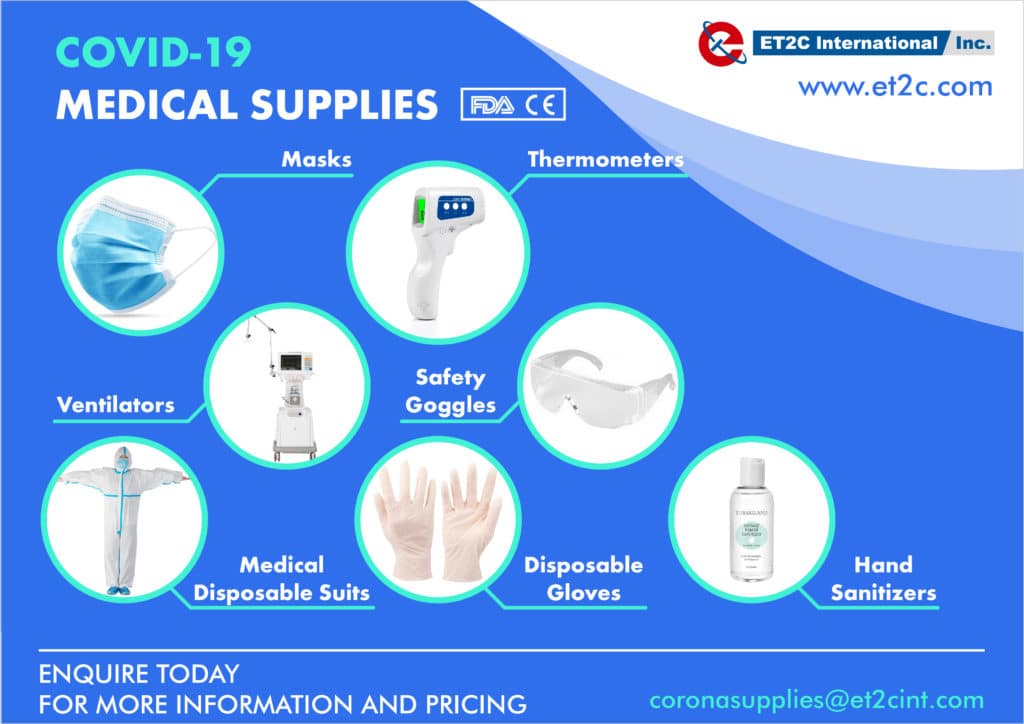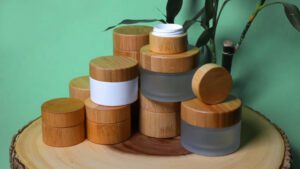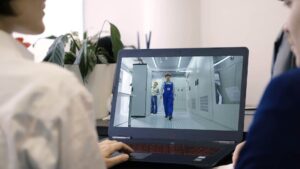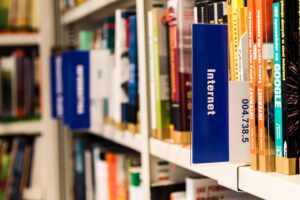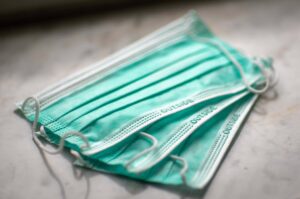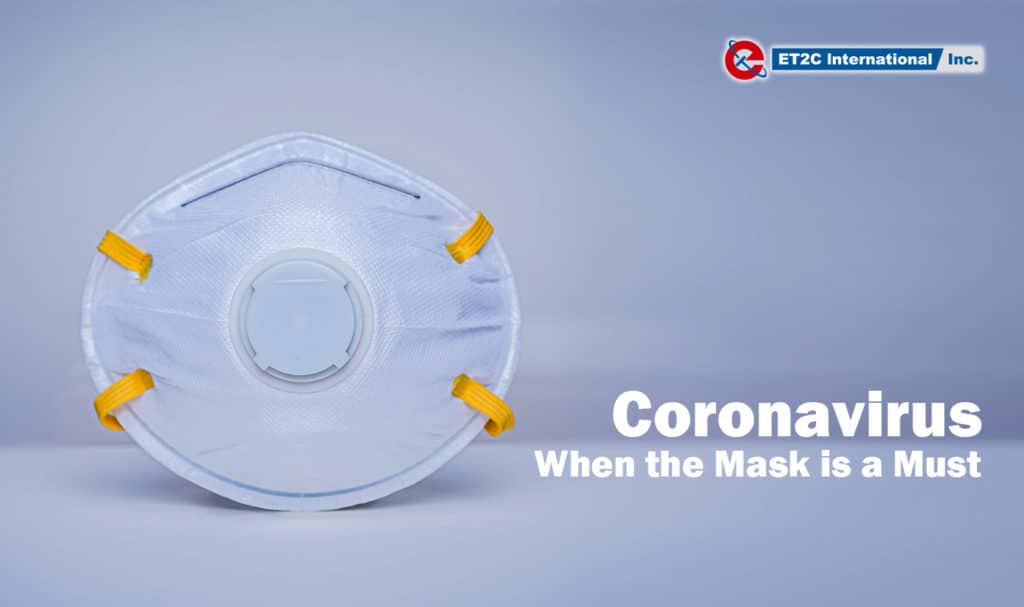
Those who live in Asia or have traveled there are already familiar with facial masks.
Mainly used to reduce the chance of spreading airborne diseases and to prevent the breathing in of airborne dust particles created by air pollution, in Japan and Taiwan, it is common to see these masks worn during the flu season, as a show of consideration for others and social responsibility.
With the rapid spread of the coronavirus that causes COVID-19, the entire world is now concerned about personal protective equipment to stay safe. Consequentially, face masks became the most common tool to prevent further contagion.
It is difficult to say what the best mask is to help protect against a viral infection.
Certainly, disposable face masks block large particles from entering your mouth, while more tight-fitting N95 respirator masks are far more effective at shielding you from airborne illnesses.
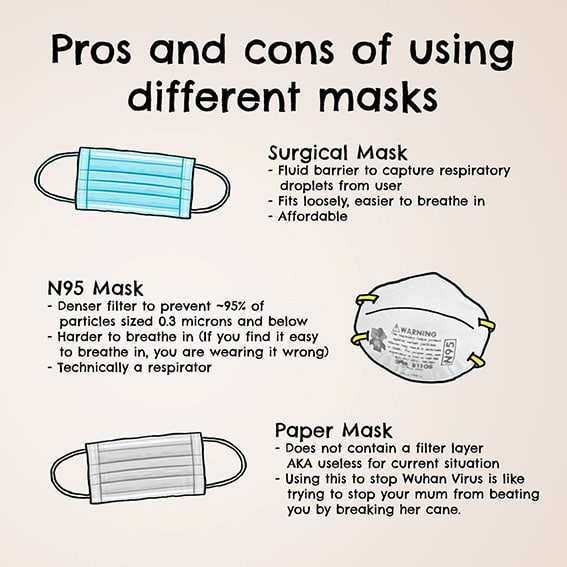
Surgical Masks
Surgical masks, also referred to as ‘face masks’, create a physical barrier between the mouth and nose of the wearer and potential contaminants in the immediate environment.
They are commonly used by health professionals during surgeries and other health care procedures to catch microorganisms in liquid droplets and aerosols from the wearer’s mouth and nose.
Surgical masks are made in different thicknesses and with different ability to protect you from contact with liquids. These properties may also affect how easily you can breathe through the face mask and how well the surgical mask protects you. Obviously, the best would be to use a thick-enough mask without compromising its breathability.
If worn properly, a surgical mask is meant to help block large-particle droplets, splashes, sprays, or splatter that may contain germs (viruses and bacteria), keeping it from reaching your mouth and nose. Surgical masks may also help reduce exposure of your saliva and respiratory secretions to others.
However, because of its design, it might not filter or block very small particles in the air that may be transmitted by coughs, sneezes, or certain medical procedures.
With no doubt, surgical masks are more affordable than other models. However, they have to be changed frequently to avoid the spread of viruses and bacteria.
N95 Masks
Also known as ‘Particulate Respirator’, these masks take the name ‘N95’ because they can prevent from 95 percent of tiny non-oil based particles in the atmosphere, like dust, pollen, mold spores, and other dangers while working or going around.
Those with the adjustable nose clip provide a custom fit and secure seal, avoiding that the mask sleeps off. For this reason, they are considered more efficient than the common face masks.
N-Series respirators have a non-specific service life, and can be used as long as the mask is not damaged or breathing resistances are not detected. However, it is strongly recommended to change them often, in order to prevent from the spread of viruses and bacteria.
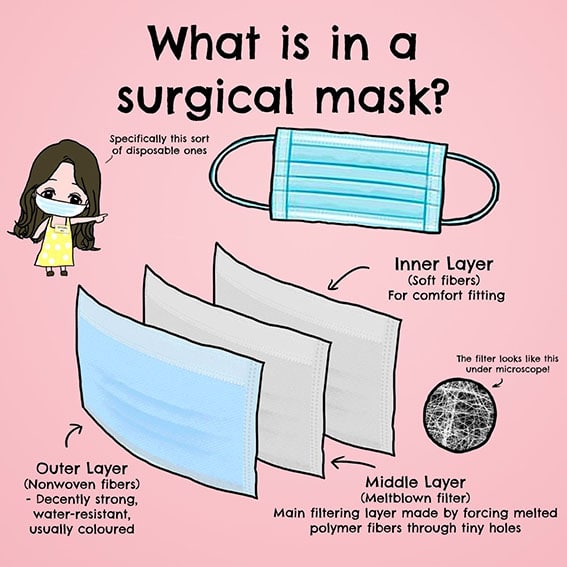
WHO – When and how to use face masks?
The World Health Organization shared some important advice to the public in order to explain the best practices for the use of the mask.
When to use the mask:
- If you are healthy, you only need to wear a mask if you are taking care of a person with suspected 2019-nCoV infection.
- Wear a mask if you are coughing or sneezing.
- Masks are effective only when used in combination with frequent hand-cleaning with alcohol-based hand rub or soap and water.
- If you wear a mask, then you must know how to use it and dispose of it properly.
How to use the mask:
- Before putting on a mask, clean hands with alcohol-based hand rub or soap and water.
- Cover mouth and nose with mask and make sure there are no gaps between your face and the mask.
Avoid touching the mask while using it; if you do, clean your hands with alcohol-based hand rub or soap and water. - Replace the mask with a new one as soon as it is damp and do not re-use single-use masks.
- To remove the mask: remove it from behind (do not touch the front of mask); discard immediately in a closed bin; clean hands with alcohol-based hand rub or soap and water.
Are you looking for masks or other medical products?
We are currently working with our partners to provide a range of masks to meet the world’s needs and to combat this deadly virus. We have available 3 Ply, KN95, N95 and FFP2 masks with CE and FDA certifications.
In addition, we have other medical products from protective gloves, face shields, hand sanitizers, medical suits, gowns and goggles to meet your needs. Please contact us for more information at coronasupplies@et2cint.com .

